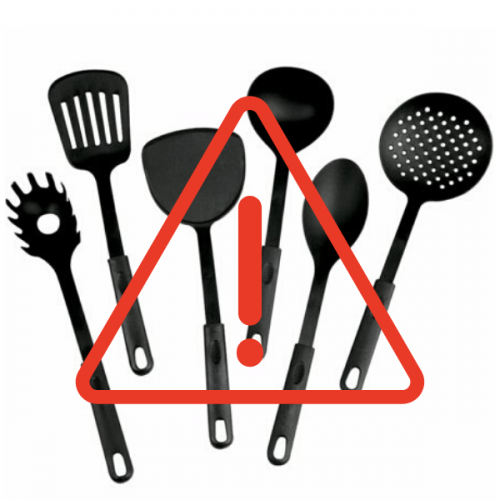Why Black Plastic Is Bad News
Black plastics are basically not recyclable due to their color. They can also contain unregulated amounts of toxic chemicals including heavy metals and flame retardants which means they could be hazardous to your health.
More than 15 million metric tons of plastic enter the ocean each year and experts predict that there will be one pound of plastic in the ocean for every three pounds of fish by 2025.
Although black plastic makes up 15% of all plastic recyclables (largely single-use food containers), the vast majority is not recycled because the infrared technology used by recycling facilities to sort plastics cannot “see” the color black. As a result of this failure, most black plastic items end up in our landfills, incinerators, oceans and rivers after just a single use.
Due to the lack of recycled black plastic, the demand is often met with e-waste (discarded electronics like old computers, phones, TVs, monitors, speakers, and appliances) that contains toxic chemicals such as phthalates, flame retardants, and heavy metals such as cadmium, lead, nickel, chromium, and mercury.
These chemical-laced plastics are melted down, mixed with food grade plastics and turned into children’s toys, single-use utensils and coffee stirrers, hot cup lids, cooking implements, insulated mugs, jewelry, garden hoses, and holiday decorations, among other items.
Although existing safety regulations limit the amounts of these chemicals and metals present in electronics, there are currently NO government regulations covering the safety of recycled black plastic items.
Therefore, high levels of toxic chemicals that are prohibited in your laptop or phone are perfectly legal in your black plastic fork, spatula, slotted spoon, or hot cup lid.
A 2018 University of Plymouth study found toxic chemicals present at up to 30 times the levels considered safe in a full 40 percent of the black plastic toys, thermoses, cocktail stirrers, and utensils tested.
Even at very low levels, these toxic chemicals can cause serious reproductive and developmental problems, poisoning the brain and kidneys, disrupting human thyroid function, affecting development, and causing long-term neurological damage.
Items of the greatest concern include black plastic cooking utensils, stirrers, food containers, and hot cup lids, as exposure to heat increases the likelihood of these toxic chemicals leaching into your food and drink.
WHAT SHOULD YOU DO?
Follow the advice of Germany’s food safety experts and get rid of any plastic cooking utensils in your kitchen. Stick to wood or metal.
Carry your own metal or bamboo cutlery and straw so that you’ll never need to take a black plastic fork, spoon, knife, stirrer or straw again.
Avoid single-use hot cups, particularly those with black plastic sippy lids. Bring your own metal or ceramic mug, instead (and make sure the top is not made of black plastic!)





